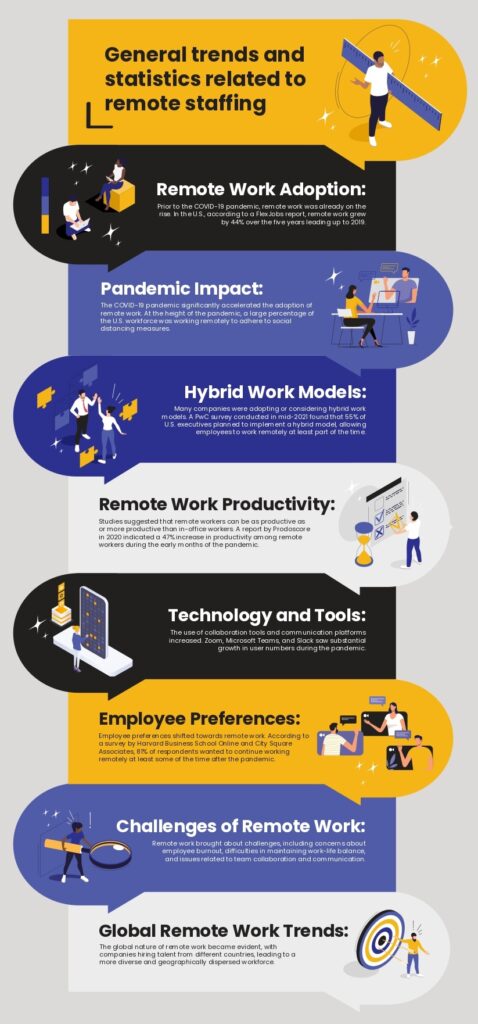Hiring an offshore team brings many benefits to your organization. For starters, it helps you reduce operational costs by at least 40% without affecting the productivity of your team. It’s also a great way to expand your organization and achieve growth in a faster way.
But, we get it… it’s not easy. Some might say it’s harder than managing an internal team.
At Superior CS Group, we have years of experience working with people from different parts of the world. During this time we have learned how to ensure that your remote offshore team is:
- Productive
- Able to communicate effectively
Read on to discover the strategies that will help you along the way!
6 best practices for managing an offshore team
Managing an offshore team effectively requires you to have a thoughtful approach to prioritize:
- Clear communication
- Strong collaboration
- Cultural awareness
Here are some best practices to help you navigate the unique challenges and enjoy the rewards of offshoring.
Ensure Clear Job Roles
Like any new employee, you must ensure that your offshore staff comprehends their job duties and responsibilities. Understanding their responsibilities makes it easier for them to work both alone and as part of a team.
Don’t forget to explain who is responsible for certain tasks so that everyone can communicate effectively and work together to complete projects and achieve common goals.
Set Up Clear Expectations and Goals
When working with a remote team, you need to reduce the risk of poor communication and low productivity. The best way to do this is to set clear expectations and goals.
At Superior CS Group, we encourage you to
- Make a list of everything that needs to be done.
- Include who is responsible for each task.
- Specify the date by which each should be completed.
- Explain it to your team and allow them to ask questions.
- Use Gantt charts so that everyone can see the progress and status of the project. Or use project management tools like Asana or Trello to keep everyone aligned.
- Make sure you have regular meetings to review the status of the project and any potential delays or obstacles.
We also recommend that you work with a good offshore staffing company. They will be responsible for monitoring the productivity of each of your new remote employees, giving you the peace of mind to focus on other core areas of your business.
Ensure Accountability and Time Management
Making sure your team members are accountable for their tasks means you have effectively communicated what is expected of them. And, that you have guided them on the importance of delivering work on time.
We suggest having weekly meetings with your team at the start of the week. This will help ensure that everyone is aware of their tasks, potential obstacles, and collaboration requirements. Also, implement daily reports to better manage your offshore staff.
Prioritize Communication
We get it, sometimes it can be hard to stay in touch with offshore employees. They are not sitting right next to you at your desk, and not every little detail requires a video conference call. Fortunately, technology is on our side, and every year we have new tools and systems to improve communication and make it easier for everyone to stay on the same page.
The most important tip we can share with you is that you need to be able to understand what can be done through email, a quick message, or what requires a video call.
Each channel has its advantages and limitations, but there are times when it’s necessary to have everyone on the same call and other times when just a message is enough.
Some of the most popular tools used by offshore teams are Zoom, Slack, Teams, and WhatsApp. They all help you share information and stay connected with each member of your team.
Always go the extra mile. Each team member should document their work, decisions, and progress in platforms that others can access and contribute to later.
Try to schedule regular follow-up meetings to check on the status of projects and how everyone is doing. We recommend weekly meetings with each of your teams. For more important/urgent projects, these meetings can be more frequent.
Avoid Micromanagement
Offshore workers tend to be good at self-management. Chances are this is not their first time working in a remote environment. Allowing them to be self-sufficient boosts their performance, creativity, and overall company productivity.
But we understand that it takes time to get comfortable working this way. Not having them in the office can cause anxiety because you cannot control when and how things are done. To help you in this process, we suggest that you:
- Provide adequate onboarding training. Typically, offshore staffing agencies handle the paperwork, initial setup, and training of new hires. But you want to go the extra mile and send them a handbook of your organization, introduce them to your team, have a conversation with them about goals and expectations, and have regular check-in meetings.
- Communicate business objectives effectively.
- Provide the necessary online tools to make communication and collaboration easy and effective.
Encourage Interaction Between Team Members
Just because they’re not sitting next to each other doesn’t mean they can’t build strong relationships. Isolation and depression affect overall productivity. To avoid these situations, it’s important to encourage social interaction between your offshore and onshore teams.
You can do this by:
- Holding regular meetings and setting aside a few minutes to chat about non-business topics.
- Hosting virtual parties.
- Organizing team-building activities through Zoom or Teams.
- Having a chat room in Slack or Teams to talk about random topics.
Final Thoughts
Working with offshore teams has its benefits and challenges. Cultural and communication gaps, performance management, trust, and data security are just a few of them. But there are ways to overcome them and create a team that’s focused on completing their assignments and achieving common goals.
But, keep in mind that handling all of your offshore hiring with a specialized provider will make all the difference. For starters, an offshore staffing agency will handle everything related to screening, selecting, and interviewing candidates. Then they will handle the initial onboarding and payroll. And, if necessary, they will replace one person with another who better fits your company’s needs and culture.
Blending onshore and offshore teams is possible. It’s just a matter of trusting the process and providing the necessary guidance and tools.




